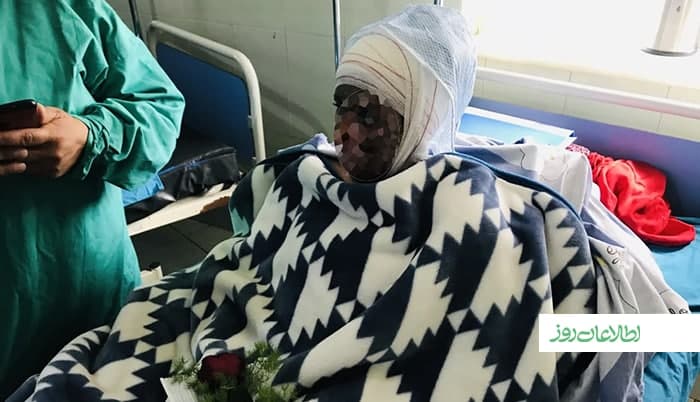This year on the occasion of the international women solidarity day, a number of women’s rights visited victims of domestic violence at the Herat Regional Hospital. Zahra and Eqlima, the two victims of domestic violence, were laying in critical condition.
Zahra Ahmadi, 30, is a victim of violence, who has been hospitalized for almost the last three months in Herat Regional Hospital. Her doctor says that almost 50 percent of her body is burned. It is difficult for her to talk as the painful scars of her half-burned body are bandaged. “I can never forget that scary night when my children and I were set on fire,” she says. Zahra recounts that her drug-addicted husband set her and her children ablaze but as the quantity of petrol oil was less her children managed to escape with little damage on their bodies.
I think I will never recover again
Until five years ago, the western Herat province recorded the highest number of violence and self-immolation committed by women. It is good news to tell that the ratio of female self-immolation has dropped by large but domestic violence and violence against women remain a challenge in Herat.
Zahra said that her husband took her and her children to a store near Herat-Islam Qala highway and set them ablaze after keeping them there for three days. “I and my younger son would have died if my eldest son did not act quickly.”
A report issued by the Afghanistan Independent Human Rights Commission (AIHRC), says that in 2020 most cases of violence against women have been committed by the family members of the victims. “Out of all 3,477 cases of violence against women, 3,331 (95.8) have been committed by family members of the victims,” the AIHRC report reads.
At 13 Zahra was forced by her family to marry a man who then was 30 years old. With an uncertain future awaiting her children, she is worried about them.
Child marriage is an old tradition in Afghanistan. Many Afghan families in rural areas wed off their daughters as young as 14 or 15 years old.

Eqlima, 30, is another victim of domestic violence in Herat. She was burned by her in-laws so gravely as now she is laying on a bed with half of her body has become completely paralyzed. She is eight-months pregnant. “My mother-in-law used to fight me all the time. One day she poured petroleum on my body and burned me.”
“In the past three months, my family have spent nearly 250,000 afghanis [for my treatment]. Doctors say that my wounds are severe and I need to go through another surgery, but I think I will never recover again,” says Zahra.
Anisa Sarwari, the chairwoman of Herat Directorate of Woman Affairs, says the victims of domestic violence are living in bad condition. “We have to support victims of violence because they are in a bad economic situation.”
Statistics by the Herat Directorate of Women Affairs show that 672 cases of violence against women were registered over last year— a 15 percent decrease as compared to the previous year.
Rape, harassment, humiliation, and torture are common forms of violence in Herat, according to local officials. In the absence of law and order, most perpetrators of violence against women escape easily. Reports suggest that most of those who commit domestic violence find safe refuge in the areas under the control of the Taliban.
Eqlima, disappointed as she looks, complains that law enforcement forces have failed to arrest her husband and mother-in-law. Hawa Gul, Zahra’s mother, calls on the government to bring the perpetrator of her daughter’s wound to justice.




